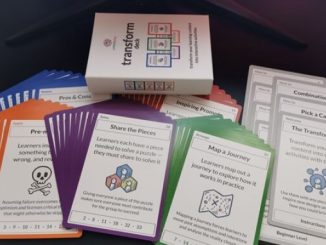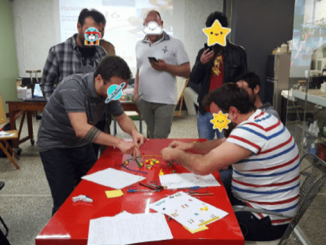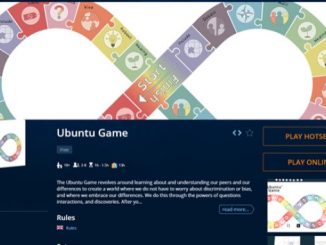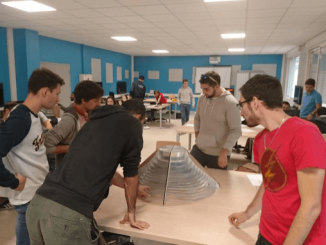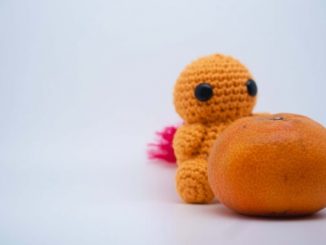Welcome to issue thirteen of Ludogogy Magazine – Make & Break
SPECIAL READER OFFER
As part of our Prototyping & Playtesting week, regular Ludogogy contributor Terry Pearce of Untold Play gave a demo of his new product, the Transform Deck Here is the demo recording. Also check out my review of the Deck
The deck launches via the UntoldPlay site on Oct 28. It’s a practical tool to inspire learning designers to transform learning content into engaging activities. Distilled and curated from twenty years of learning design experience, each card is a way to take content and transform it into a different kind of activity. The deck includes 45 activity types in five suits, together with seven instruction cards detailing new ways to combine, lay out, and play with the cards to transform your learning.
If you are reading this before 21st October, make sure to sign up to the Ludogogy mailing list – because Terry is offering a Earlybird discount of £20 to Ludogogy subscribers, on the price of the Transform Toolkit, which includes the deck, a set of digital minis of the cards and access to the Transform user forum.
Prototyping can be considered the point in the design process of games-based learning and gamification, when the fun really starts. It’s a chance to play after all the hard discovery and analysis work – working out the (learning) objectives, outcomes and outputs, for example. In prototyping we get the opportunity to try, fail, experiment and learn what works. Indeed, I often think it is the closest we, as designers, come to the kind of exploration and learning experience we are hoping to create for our players / learners.
When it comes to playtesting, however, we have to take a step back. It’s the time when our beloved ideas have to take their first tentative steps out there in the real world, without our support. And this can be a painful experience. We have to be prepared for them to be abused or even broken, by those first players
In the long run, being brave enough to repeatedly expose our ideas and artefacts to close scrutiny and criticism, and to act on what we discover about their weaknesses, is what will make them stronger and iteratively more fit for purpose.
There is a wealth of experience and expertise embedded in the articles (and the accompanying live events) about these two fundamental processes of our design practice. We hope you find this issue instructive and inspirational.
Explore:
Taking your Time to Get It Right
From Zero to Done in 21 Days
Where and How to fit Playtesting into your Process
Relive the Make & Break Live Events
Much more
We are now accepting submissions for the following themes:
Issue 14 (November) ‘Economics’ – deadline 31 October – The intricacies of designing and implementing in-game economies, creating value ‘sources’ and ‘sinks’ in gamification applications, using games for learning about real-world economies, different economic models or ideas e.g. Doughnut Economics, Triple Bottom Line, as implemented in games etc.
Issue 15 (January) ‘Winning’ – deadline 26 December – Designing ‘win-states’ in games to keep players playing, competition vs cooperation (or balancing the two), designing and implementing scoring systems, the psychological/pedagogical implications of winning (or losing) in learning games, how different player types ‘win’ etc.
Send proposals or drafts to [email protected]
Stay Home, Stay Safe, Stay Playful


